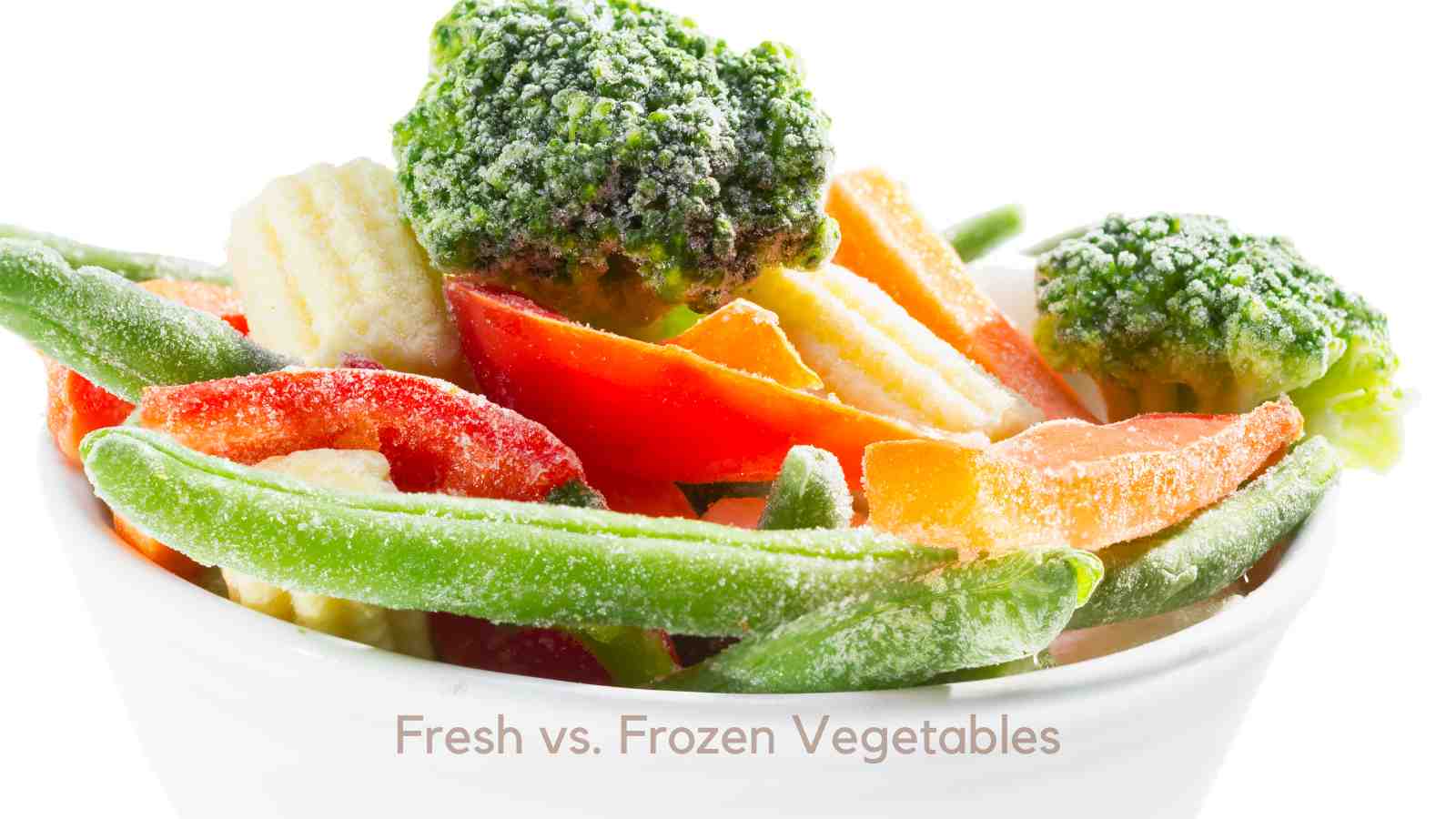Every now and again, who doesn't enjoy the ease of frozen produce? It's ready to eat with no preparation required, and there's no fear of losing a finger when cutting.

Choosing how to purchase vegetables (and then cook them once at home) may be overwhelming, especially with so many choices filling the grocery store aisles.
What's the greatest approach to get the most nutritional bang for your money when nutrition is a determining factor?
Which is more nutritious: Fresh vs. Frozen Vegetables?
Uncooked, fresh vegetables are said to be more nutritious than frozen produce. However, this isn't always the case.
Fresh and frozen vegetables were compared in recent research, and the experts discovered no significant variations in nutritional content. In fact, after 5 days in the fridge, fresh vegetables performed worse than frozen produce, according to the research.
Have you scratched your head yet? Fresh food, it turns out, loses nutrients when kept in the refrigerator for too long.
To add to the complexity, minor nutritional variances may exist depending on the sort of vegetables you purchase. Fresh peas contained more riboflavin than frozen peas in another recent research, although frozen broccoli had more of this B vitamin than fresh broccoli.
Frozen corn, blueberries, and green beans all contained more vitamin C than their fresh counterparts, according to the researchers.
Why do fresh vegetables lose nutrients?
The nutritional loss in fresh vegetables might be due to the farm-to-store process. The freshness of a tomato or strawberry starts shortly after picking, not when it reaches the grocery store shelf.
When a fruit or vegetable is harvested, it starts to produce heat and lose water (a process known as respiration), which has an influence on its nutritional content.
Then, by the time it reaches the market, pest-controlling chemicals, shipping, handling, and plain old time have caused fresh food to lose some of its essential nutrients.
The longer produce is stored, the more nutrients it loses. After 10 days in the fridge, those packaged salad greens, for example, lose up to 86 percent of their vitamin C.
How to Keep Fresh Fruit and Vegetables Nutritious
Keep these vegetables in the crisper drawer of your fridge to retain the most nutrients:
- apples
- berries
- broccoli
- carrots
- eggplant
- peppers
- salad greens
Keep them on the counter if you want to:
- hot peppers
- oranges
- melons
- pumpkins
- winter squash
- sweet potatoes
It's recommended to maintain this group in a cold, dry location as a general rule:
- bananas
- garlic
- lemons
- onions
- potatoes
- tomatoes
How to freeze fresh produce
The length of time that product remains fresh varies. In general, you don't want to keep it for more than a few days before eating it or freezing it.
To deactivate the enzymes that cause fruits and vegetables to lose color, taste, and nutrients, the blanch-and-freeze procedure is widely used.
Look up cooking times before blanching (dropping vegetables into boiling hot water for a few minutes before drying) since each variety of produce is different.
Foods strong in fat-soluble nutrients, such as vitamin A (broccoli), carotenoids (carrots), and vitamin E (eggplant), are best frozen (spinach and kale). During food preparation and storage, they are more stable.
What about veggies that have been cooked?
Raw foodies, please accept my apologies. The jury is still out on whether cooked vegetables are nutritionally "worse." It's possible that how you prepare these items will make a difference.
Steaming is the greatest method to maintain the nutrients in many vegetables, including broccoli, according to a study. Antioxidants, B vitamins, and phytochemicals like carotenoids are all increased by using this cooking technique.
Boiling is the best technique to maintain folate levels high in certain foods, such as potatoes and peas.
In general, going easy on the temperature and cooking time is the greatest way to acquire the most nutrients. Also, while preparing vegetables high in vitamins B and C, keep the quantity of water you use to a minimum.
Remember that in the presence of water, water-soluble vitamins would disappear.
In conclusion
Frozen vegetables, it turns out, contain just as many nutrients as fresh produce (if not more). Store your fresh fruits and vegetables correctly and don't keep them for too long to get the most nutrients out of them.
Cooking fruits and vegetables may also be useful. Free radical-scavenging antioxidants and phytochemicals, such as carotenoids and polyphenols, may be increased by boiling or steaming vegetables like broccoli and carrots.
To obtain the most nutritional value out of cooked vegetables, keep the temperature low and the cooking time short, and use as little water as possible in the preparation.
Check out some of our other blog posts now!




